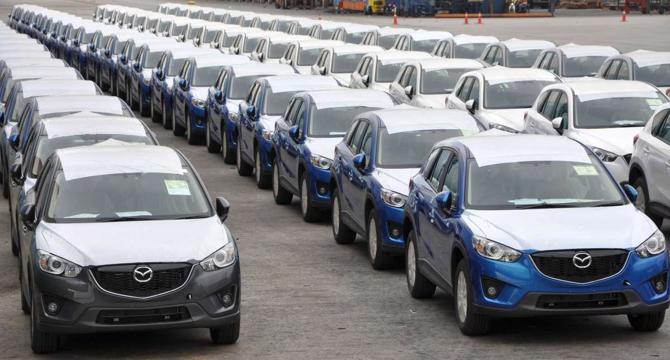Paultan
1w
55

Image Credit: Paultan
Trump tariffs set to cost Japanese carmakers RM106bil
- The recently-imposed US tariffs by president Donald Trump will have a major impact on Japanese and South Korean automotive industries, potentially costing over RM106 billion for Japanese carmakers.
- The tariffs, effective from April 3, are expected to result in significant losses for carmakers like Toyota, with estimates suggesting losses of around RM54.8 billion in revenue for Toyota alone.
- Japanese car manufacturers may need to consider actions like transferring production to the US in response to the tariffs, as suggested by UBS analyst Kohei Takahashi.
- The US accounts for over 30% of Japanese car exports, with cars contributing around 30% of total exports to the US last year, according to Japan's finance ministry.
- The Japan Automobile Manufacturers Association (JAMA) hopes for dialogue between governments to maintain a business environment benefiting both Japan and the US automotive industries.
- Mazda is expected to be significantly affected by the tariffs as the US is its largest market, with sales representing a substantial portion of its global total.
- The additional tariffs could lead to a predicted economic downturn in Japan, with estimates suggesting a potential reduction in GDP and the risk of triggering a recession.
- Besides carmakers, small and medium-sized parts suppliers in Japan will also be impacted by the tariffs, which will tax car parts from May 3, potentially leading to reduced production and employment.
- South Korea, particularly Hyundai, will also face challenges due to the tariffs, with significant reliance on the US market and plans to increase US production to mitigate the effects.
- Hyundai and Kia may struggle with profitability if they cannot reduce their reliance on US exports amidst the competitive US auto market and the inability to transfer tariff costs to customers.
- Despite growing opposition to tariff policies, Trump views vehicle tariffs as a permanent measure, with doubts on their negotiation potential and concerns about higher prices and economic repercussions.
Read Full Article
3 Likes
For uninterrupted reading, download the app